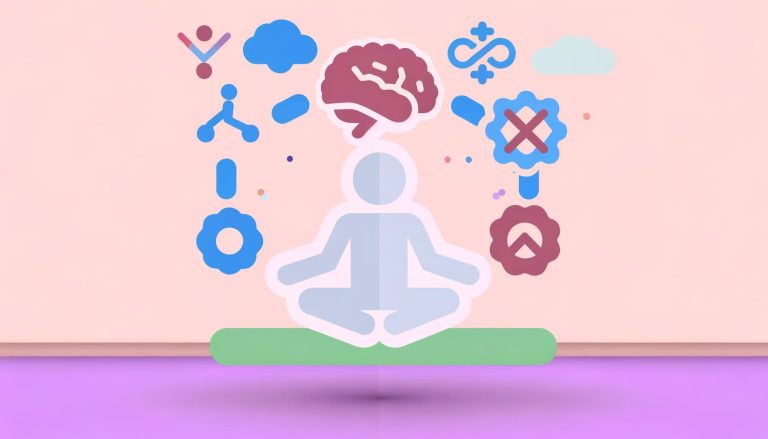Strong relationships form the cornerstone of our well-being. They play a critical role in shaping our self-esteem, which in turn impacts our everyday lives. The connections we have with others - whether they are friendships, family ties, or romantic relationships – have a profound influence on how we view ourselves. This article explores the significant impact of relationships on self-esteem, integrating insights from psychology, neuroscience, and sociology to present a holistic perspective.
The Connection Between Relationships and Self-Esteem
Self-esteem is essentially the degree to which we feel confident, valuable, and worthy of respect. Relationships provide a mirror through which we see ourselves, significantly influencing our self-perception.
The Psychological Perspective
From a psychological standpoint, healthy relationships serve as a source of validation and support. Positive reinforcement from loved ones boosts our confidence and helps us feel accepted. In contrast, relationships characterized by criticism and negativity can erode self-esteem, making us doubt our worth.
Studies show that individuals in supportive relationships experience higher levels of self-esteem. When people feel loved and appreciated, their self-worth thrives. This sense of belonging and security fosters personal growth and resilience.
The Neuroscience Angle
Neuroscience reveals that positive social interactions release oxytocin, often termed the ‘love hormone.’ Oxytocin not only fosters social bonding but also promotes feelings of trust and recognition, boosting self-esteem. Conversely, a lack of fulfilling relationships can result in elevated cortisol levels, the stress hormone, which negatively impacts our mental health.
Research indicates that supportive relationships can mitigate the brain’s response to stress and anxiety, contributing to a stronger, more positive self-image. Engaging in regular, meaningful interactions with others lights up areas of the brain associated with pleasure and reward, reinforcing feelings of self-worth.
The Role of Different Types of Relationships
Family Relationships
Family forms our first social structure and plays a central role in shaping our self-esteem. When family members are supportive and encouraging, it creates a strong foundation for high self-esteem. Positive family dynamics teach individuals the importance of self-worth from an early age.
On the other hand, dysfunctional family relationships can seriously damage one’s self-image. Constant criticism, neglect, or abuse within the family can lead to long-lasting self-esteem issues.
Friendships
Friendships provide an essential platform for social support outside of family boundaries. True friends offer acceptance and appreciation, reinforcing positive self-perceptions. They share experiences and provide emotional support, enabling personal growth and resilience during challenging times.
A lack of genuine friendships can leave individuals feeling isolated and undervalued, negatively impacting their self-esteem. Surrounding oneself with positive, supportive friends is crucial for maintaining healthy self-esteem.
Romantic Relationships
Romantic relationships can profoundly impact self-esteem. A healthy romantic relationship offers love, respect, and mutual appreciation, which significantly boosts self-esteem. Partners in positive relationships lift each other up, creating a nurturing environment that fosters self-confidence.
Conversely, toxic romantic relationships can harm self-esteem. Factors like emotional abuse, infidelity, or lack of support can lead to feelings of inadequacy and self-doubt. Ensuring that one’s romantic relationship is healthy and supportive is vital for maintaining positive self-esteem.
Practical Tips for Boosting Self-Esteem Through Relationships
Invest in Positive Relationships
Focus on nurturing relationships that help you feel valued and accepted. Spend time with people who support your growth and well-being. Positive relationships act as a buffer against stress and encourage a healthy self-image.
Communicate Openly
Effective communication is key to maintaining healthy relationships. Express your needs and feelings openly and encourage others to do the same. Transparent communication fosters trust and strengthens interpersonal bonds, contributing to higher self-esteem.
Set Boundaries
Establishing boundaries is crucial for protecting your self-esteem. Do not be afraid to limit interactions with individuals who bring negativity into your life. Surround yourself with positive influences that affirm your value and worth.
Seek Professional Help If Needed
If you find yourself struggling with self-esteem issues due to interpersonal relationships, seeking professional help can be very beneficial. Therapists and counselors can provide valuable tools and strategies to improve both your relationships and self-esteem.
Conclusion
Relationships significantly influence our self-esteem, shaping how we perceive and value ourselves. By understanding the dynamics of different types of relationships and applying practical tips for fostering positive connections, we can enhance our self-esteem and overall well-being. It is essential to invest in relationships that uplift and validate us, communicate openly, and set healthy boundaries.
Ultimately, the quality of our relationships plays a crucial role in our mental health. By actively nurturing positive relationships and addressing any negative influences, we can build a strong foundation for a healthy self-esteem and a more fulfilling life.
Sources:


